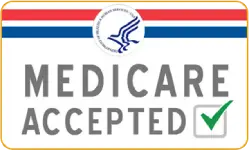At Ridgeview Behavioral Hospital, we understand that you might be dealing with more than one issue at a time. It’s not uncommon for addiction and mental illness to intertwine. For instance, you might be using drugs or alcohol to cope with depression, leading to a cycle that can result in lost relationships or job opportunities, further deepening your depression. This is what we refer to as co-occurring disorders – mental health and substance use disorders that develop together. And it’s precisely these complex issues that we address in our Co-Occurring Substance Use Disorder Treatment Program.
You might be wondering why co-occurring disorders (dual diagnosis) require a specialized treatment approach. Let’s clarify.
Historically, individuals with co-occurring disorders were placed into either mental health or addiction recovery programs. While these treatments addressed part of the problem, they didn’t fully equip individuals for long-term recovery. This often led to relapses after leaving treatment, as their needs were only partially met, making it challenging to regain control of their lives. That’s why our Co-Occurring Substance Use Program tackles both issues simultaneously. This approach increases your chances of recovery, which is always our top priority.
Here’s a glimpse of the treatment options we offer:
We use the terms “co-occurring substance use disorder” and “dual diagnosis” interchangeably. Both refer to the simultaneous presence of a substance use disorder (such as alcohol or drug abuse or dependence) and another mental health disorder (such as depression, anxiety, or bipolar disorder). These co-occurring disorders can interact and influence each other, complicating diagnosis and treatment. But don’t worry, we’re here to help you navigate this complexity.

Co-occurring substance use disorder and Dual Diagnosis – Both “co-occurring substance use disorder” and “dual diagnosis” are often used interchangeably in the context of mental health and addiction treatment. Both terms refer to the presence of both a substance use disorder (such as alcohol or drug abuse or dependence) and another mental health disorder (such as depression, anxiety, or bipolar disorder) occurring simultaneously in an individual. These co-occurring disorders can interact and influence each other, complicating diagnosis and treatment.
